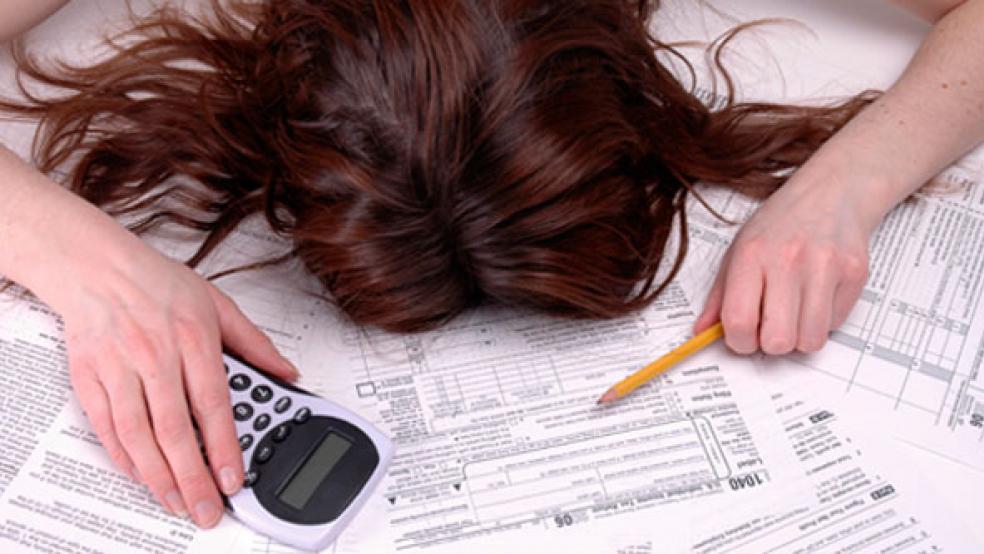President Obama is at it again – calling for tax hikes on the wealthy and trying to divert the nation from the sputtering economy. In renewing his well-worn pitch, he claimed that “what’s holding us back is not a lack of plans, not a lack of ideas” but rather the stalemate in DC. Does anyone actually believe that our recovery has run out of steam because Congress hasn’t raised taxes on rich people?

Isn’t it more likely that the White House’s ongoing assault on employers – and especially on small businesses – has stymied job growth? The National Federation of Independent Businesses (NFIB) just reported that its index of small-business optimism declined in June, taking us back to October 2011 levels. (And this reading was taken before the Supreme Court ruled on Obamacare, which almost surely will cause further slippage in the next poll.) Compared to the prior month, businesses reported significantly lower plans to hire and to invest in capital projects. That can’t be good.
Obama claims that 97 percent of small businesses would not see a tax hike. He’s counting the millions who sell baseball cards on EBay or who teach piano but who don’t employ people.
Why the gloom? As NFIB chief economist William Dunkelberg explained in the press release, “Taxes remain a top concern for the small-business community.” He notes especially the 20 new taxes included in Obamacare – “a price tag of $800 billion” -- and a slew of new related regulations that make the cost of hiring unclear.
Will the president’s move to preserve the Bush tax cuts only for those earning less than $200,000 ($250,000 for families) offset those anxieties? Not likely. The NFIB reports that 75 percent of small businesses surveyed are organized as pass-throughs, paying taxes at individual rates and that “54 percent of the private sector is employed by pass-through entities. Therefore, any increase in the individual rate at the end of the year will hit America’s number one job creators the hardest.”
President Obama claims that very few small businesses would be impacted by his proposed tax hike on high earners; Republicans dispute that claim. The Treasury Department appears to side with the latter. They report that of the 4.3 million small businesses organized as “pass-throughs” (that pay taxes at personal rates) some 1.2 million or 28 percent make more than $200,000, and that they account for almost 91 percent of the income earned by such entities.
It stands to reason that most of the hiring by such companies is undertaken by those earning the bulk of the income -- those that will be hit with the tax increase. So when the president claims that 97 percent of small businesses would not see a tax hike, he’s counting people who sell baseball cards on Ebay or who teach piano; there are millions of these entities, but they do not employ large numbers of people.
How does letting the Bush tax cuts expire for one year give “job creators relief and a sense of permanence?"
Hiking taxes on high earners (and employers) is Mr. Obama’s chosen campaign message, when he himself has cautioned against raising taxes during a recession. The tax plan repeated by the president does not even accomplish his cited goals. How does raising taxes on our highest earners “build a strong and growing middle class?” How does letting the Bush tax cuts expire for one year give “job creators relief and a sense of permanence?”
If nothing else, the president seriously risks boring Americans to death. His plan is as stale as month-old bread. Even he looked bored as he dragged out this tired routine for yet another audition. The women grouped behind him had to be prompted to applaud the president’s remarks – with Mr. Obama cueing them up by repeating applause-worthy lines.
The White House political savants have reasonably concluded that they cannot campaign on President Obama’s record. They are terrified that Romney will eventually put before Americans a concise, thoughtful pro-growth message that will capture the public’s imagination. Moreover, voters may conclude that the GOP candidate is better able to carry out a turnaround; his CV suggests success. Despite his claims, Mr. Obama seems bereft of plans and ideas at a time when the country is looking for inspiration and leadership – attributes he sadly lacks.
He also lacks the confidence of the electorate. Polls are quite clear; voters think President Obama has done a bad job of guiding us out of the recession. The latest reading, by ABC News and the Washington Post, show the president’s job approval in negative territory overall (47-49), and especially on economic matters (44-54). The survey also shows that Americans, by a 43-36 margin, consider the president’s stewardship of the economy a major reason to oppose him. It is unlikely that hauling out yet another contentious and divisive tax plan will bump those ratings.
When he launched his so-called “Buffett Rule,” also meant to get the rich to pay “their fair share,” the President’s approval ratings barely budged. Ironically, the ABC poll shows voters trust Obama and Romney the same when it comes to how they will handle taxes.
Americans should not double down. We have wasted four years fighting over an unpopular healthcare overhaul and tax equity – four years of leaderless gridlock that has led the country in a direction most Americans abhor -- instead of building a springboard for renewed growth. It’s time to give someone else a chance.






